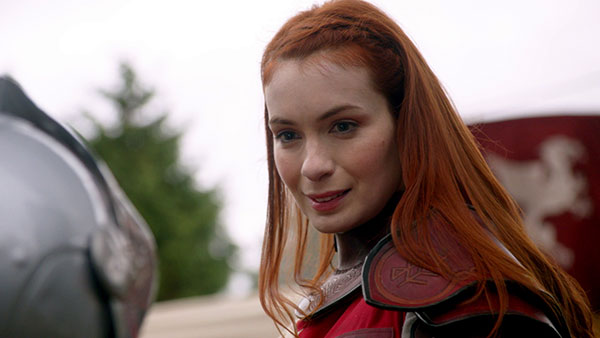
ARROW: THE COMPLETE FIRST SEASON
Image A Sound B Extras B-
“Pilot,” “Honor Thy Father,” “Lone Gunmen,” “An Innocent Man,” “Damaged,” “Legacies,” “Muse of Fire,” “Vendetta,” “Year’s End,” “Burned,” “Trust but Verify,” “Vertigo,” “Betrayal,” “The Odyssey,” “Dodger,” “Dead to Rights,” “The Huntress Returns,” “Salvation,” “Unfinished Business,” “Home Invasion,” “The Undertaking,” “Darkness on the Edge of Town,” “Sacrifice”
SUPERNATURAL: THE COMPLETE EIGHTH SEASON
Image A Sound B+ Extras B
“We Need to Talk About Kevin,” “What’s Up, Tiger Mommy?,” “Heartache,” “Bitten,” “Blood Brother,” “Southern Comfort,” “A Little Slice of Kevin,” “Hunteri Heroici,” “Citizen Fang,” “Torn and Frayed,” “LARP and the Real Girl,” “As Time Goes By,” “Everybody Hates Hitler,” “Trial and Error,” “Man’s Best Friend with Benefits,” “Remember the Titans,” “Goodbye Stranger,” “Freaks and Geeks,” “Taxi Driver,” “Pac-Man Fever,” “The Great Escapist,” “Clip Show,” “Sacrifice”
by Jefferson Robbins Kindred shows in more ways than just their sharing a network, a Vancouver, B.C. shooting base, and a David Nutter-helmed pilot, The CW’s “Arrow” and “Supernatural” also share a gestalt. Post-“The X Files”, post-“Buffy”, they grapple with family legacies, duty versus desire, and bonds (specifically male) threatened by the intrusion of a) monsters and b) lovers. Watching the debut season of the former alongside the eighth season of the latter, it becomes clear that “Arrow”‘s showrunners, headed by Greg Berlanti, Marc Guggenheim, and Andrew Kreisberg, are just as steeped in the modes and methods of this youth-oriented action programming as “Supernatural” creator Eric Kripke. Both series find young, handsome protagonists consumed with the bloody twilight work left undone by their dead fathers; and both–despite “Arrow”‘s roots as a second-tier DC Comics property straining for multimedia relevance–are better, and bloodier, and in some ways more relevant, than one has any right to expect.
